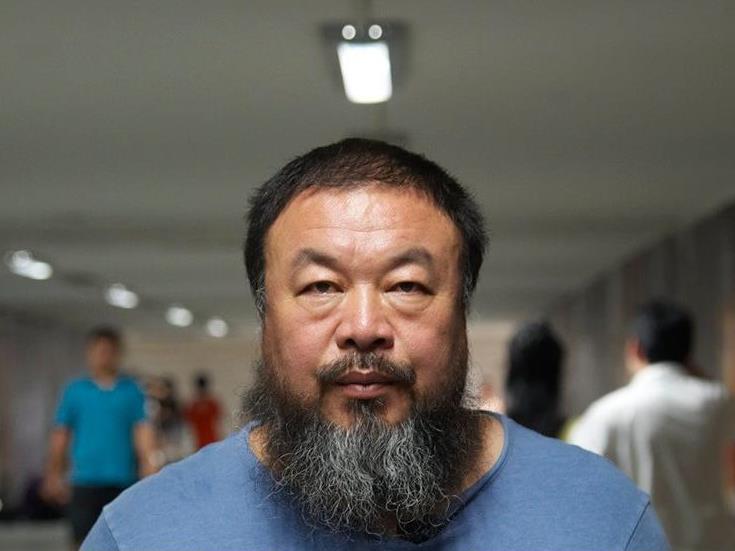Image: http://2015.hraff.org.au/
It is with a pensive and penetrating gaze that Ai Weiwei surveys his surroundings, his eyes roaming even if he isn’t permitted to physically wander very far from home. Whether watching over his busy studio, glancing around the neighbourhood park where he walks to relieve his high blood pressure, or peering up at the moon in the night sky, his expression rarely changes. A smile might light up his face momentarily; however his is the look of a man troubled by the world and driven to respond.
That the internationally renowned Chinese artist and activist enters the frame of the latest film that bears his name fresh from eighty days in solitary detention – officially on charges of tax evasion, yet also censuring his political antics – helps explain his permanently concerned countenance. So do the restrictions, not just on his movements but on his speech, placed upon him as a condition of his release. The limitations he must now operate within are devastatingly demonstrated as he manoeuvres through the throng of waiting reporters, declining interviews and hurrying away, rather than stopping to chat as he would have six months prior.
Ai Weiwei: The Fake Case tries to unravel the reason for the central figure’s actions and visible anxieties, though that is a much more difficult task than it might seem. The documentary’s moniker may also trumpet the legal proceedings against him – fake, because it relates to Weiwei’s company, Fake Ltd, and due to the tenuous basis of the allegations at the case’s core – but what the film charts is his reaction. This is a portrait of a man trying to reconcile his beliefs and his freedoms, but one that can only be conveyed by adhering to the same boundaries that now dictate his existence.
To that end, writer, director, producer and cinematographer Andreas Johnsen (Kidd Life) adopts an observational approach to trailing his subject, compiling footage shot over four years though largely focusing on a twelve-month period of house arrest. The filmmaker records the seemingly routine moments in Weiwei’s post-detention activities, as he talks with friends and family members, tries to navigate his ban on speaking to the press, and pieces together a new conceptual work based on his experience. Newcomers to the artist and his installations aren’t afforded an introduction or overview of his background, with earlier feature Ai Weiwei: Never Sorry covering that territory already. Instead, boasting the kind of unhurried pacing that can only come from deft editing, as well as a suitably unpolished aesthetic, The Fake Case simply attempts to depict his mindset.
The film that results is an intimate slice not of his life, but of the headspace that dwells behind the headlines that have brought him to global prominence. In fact, more than probing his recent circumstances, it clearly just enjoys spending time in Weiwei’s company, and letting him – and his gaze – do the talking. That the feature is equally open and enigmatic is a reflection of Weiwei himself as he comes to terms with his situation, always honest about his feelings, albeit uncertain about how to achieve his aims. That the documentary doesn’t delve any deeper than the obvious atmosphere of unease is its most frustrating filmmaking choice; however it too matches the conflicted figure it follows as well as his meditative mood and precarious predicament.
Rating: 3 out of 5 stars
Ai Weiwei: The Fake Case
Director: Andreas Johnsen
Denmark / China / UK, 2013, 86 mins
Human Rights Arts and Film Festival
http://2015.hraff.org.au/
Melbourne: 7 – 21 May
Canberra: 22 – 25 May
Sydney: 26 – 30 May
Darwin: 30 May – 1 June
Brisbane: 2 – 4 June
Perth: 2 – 4 June
Alice Springs: 5 – 7 June
Actors:
Director:
Format:
Country:
Release:





